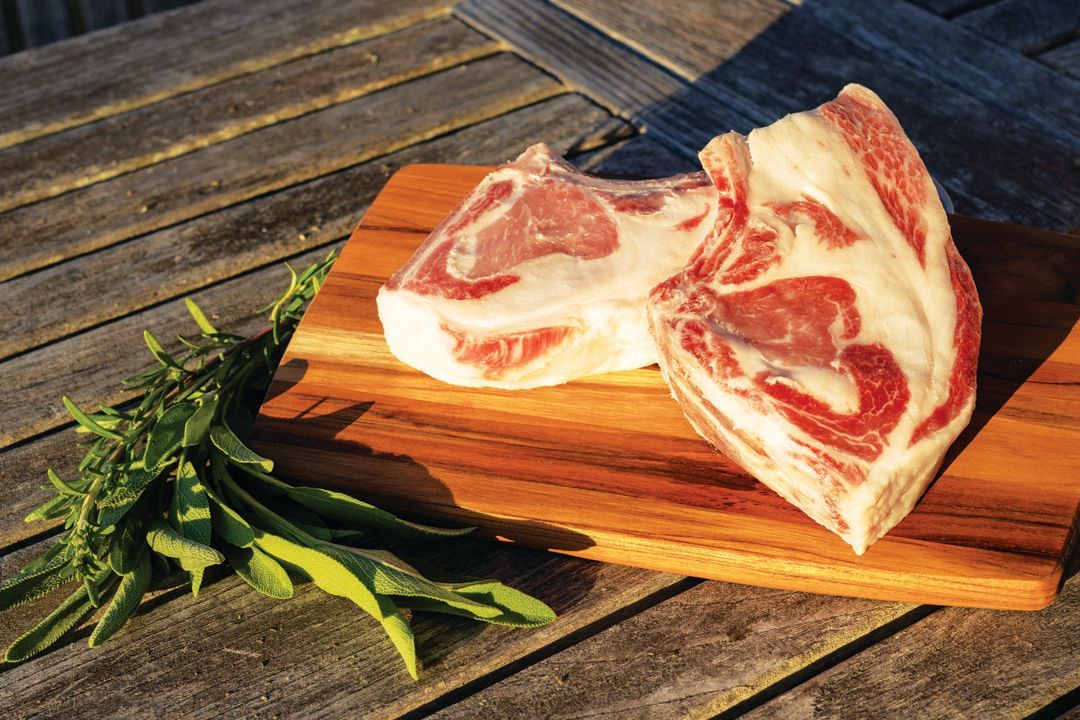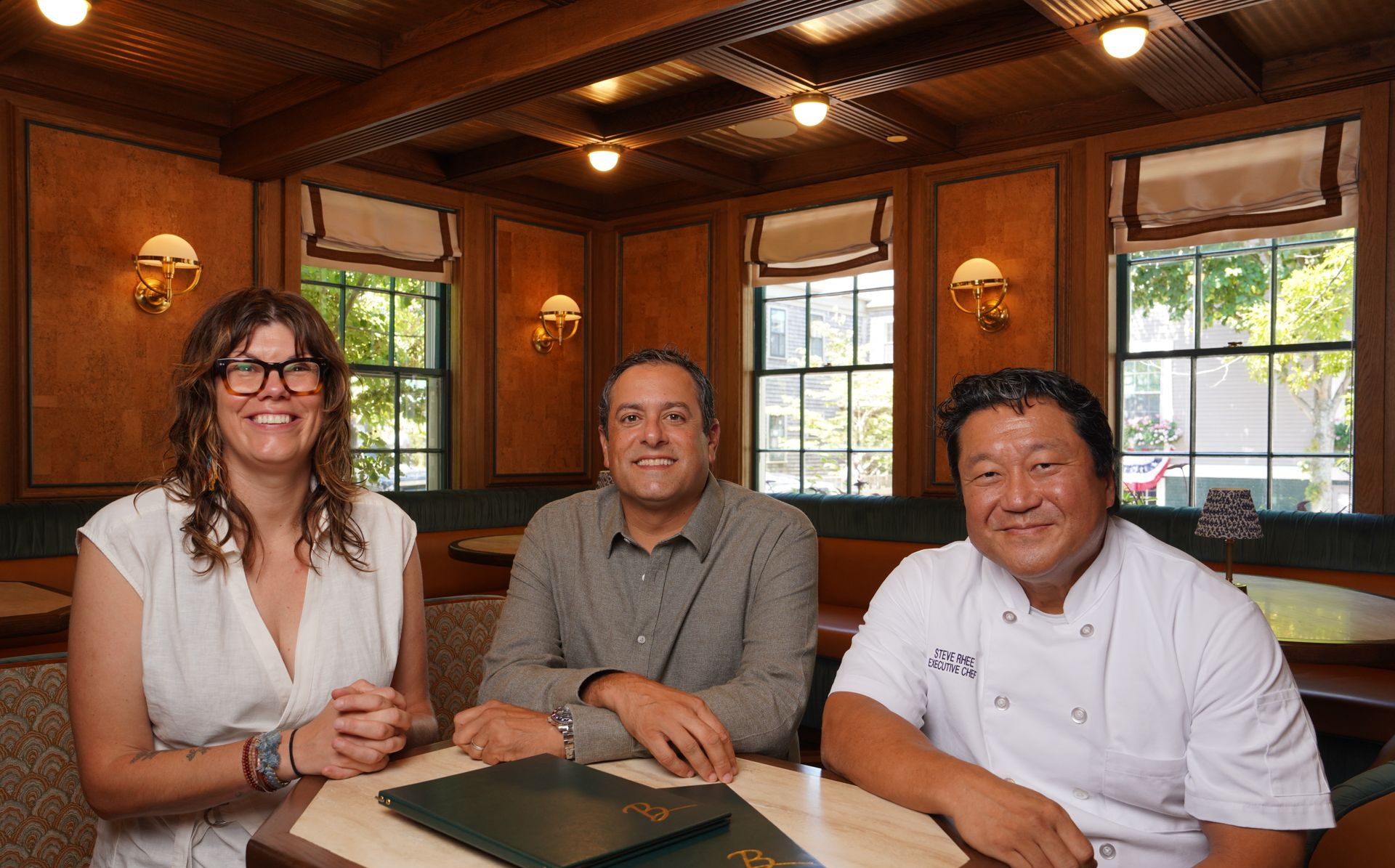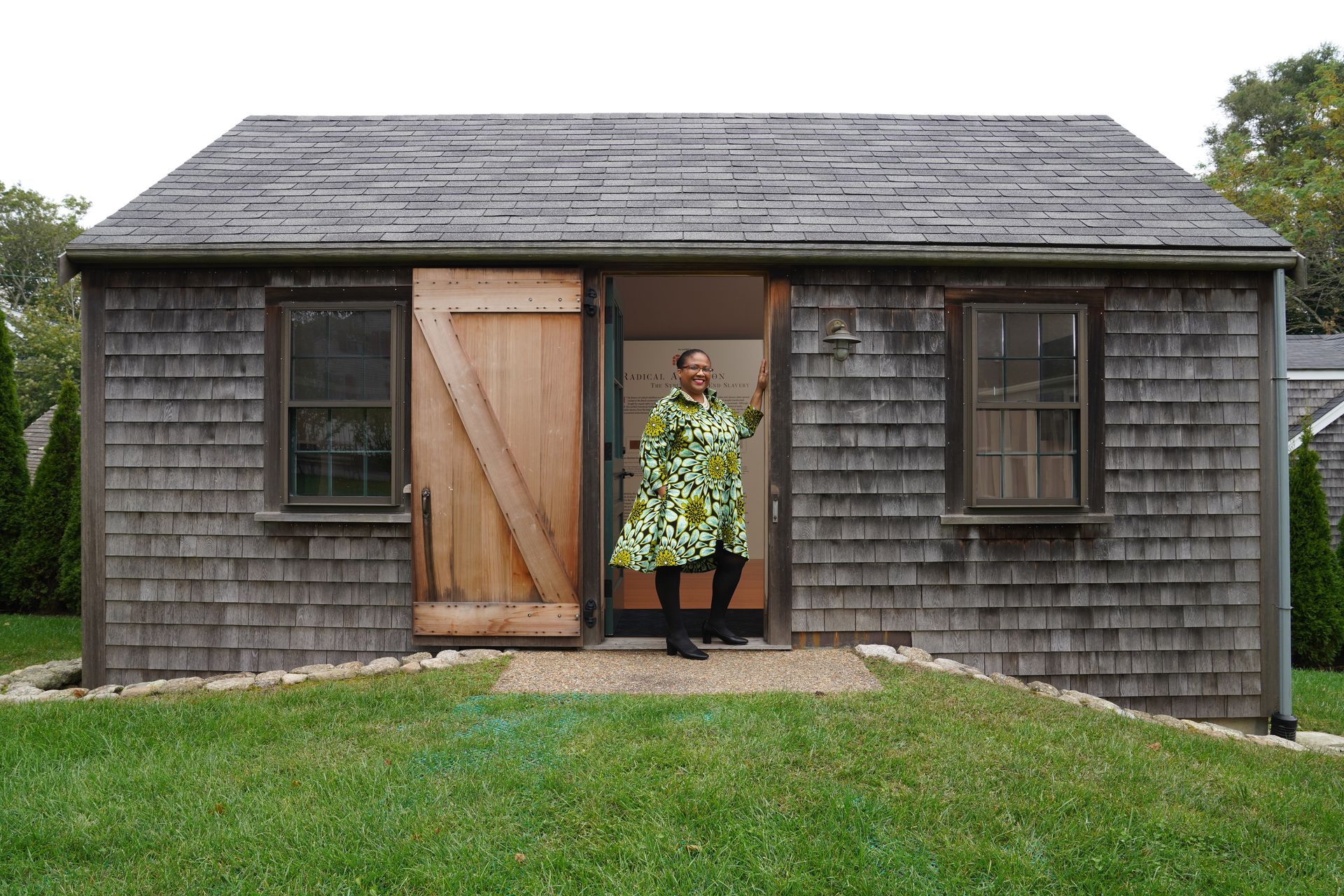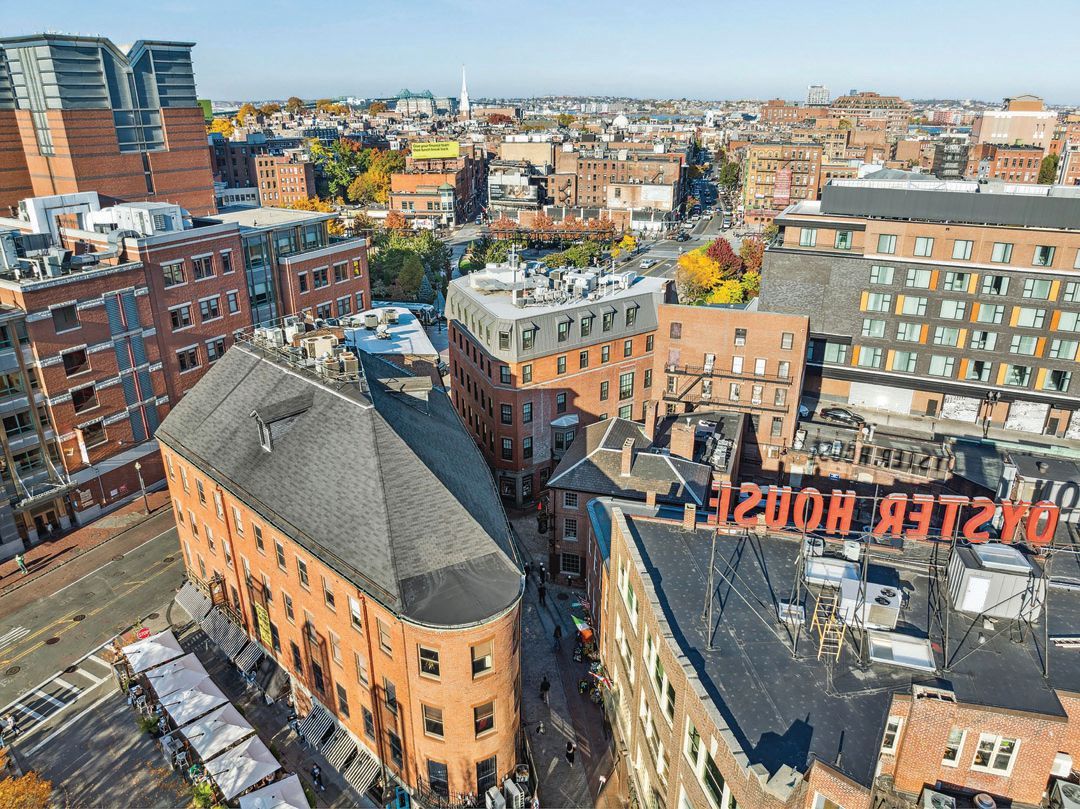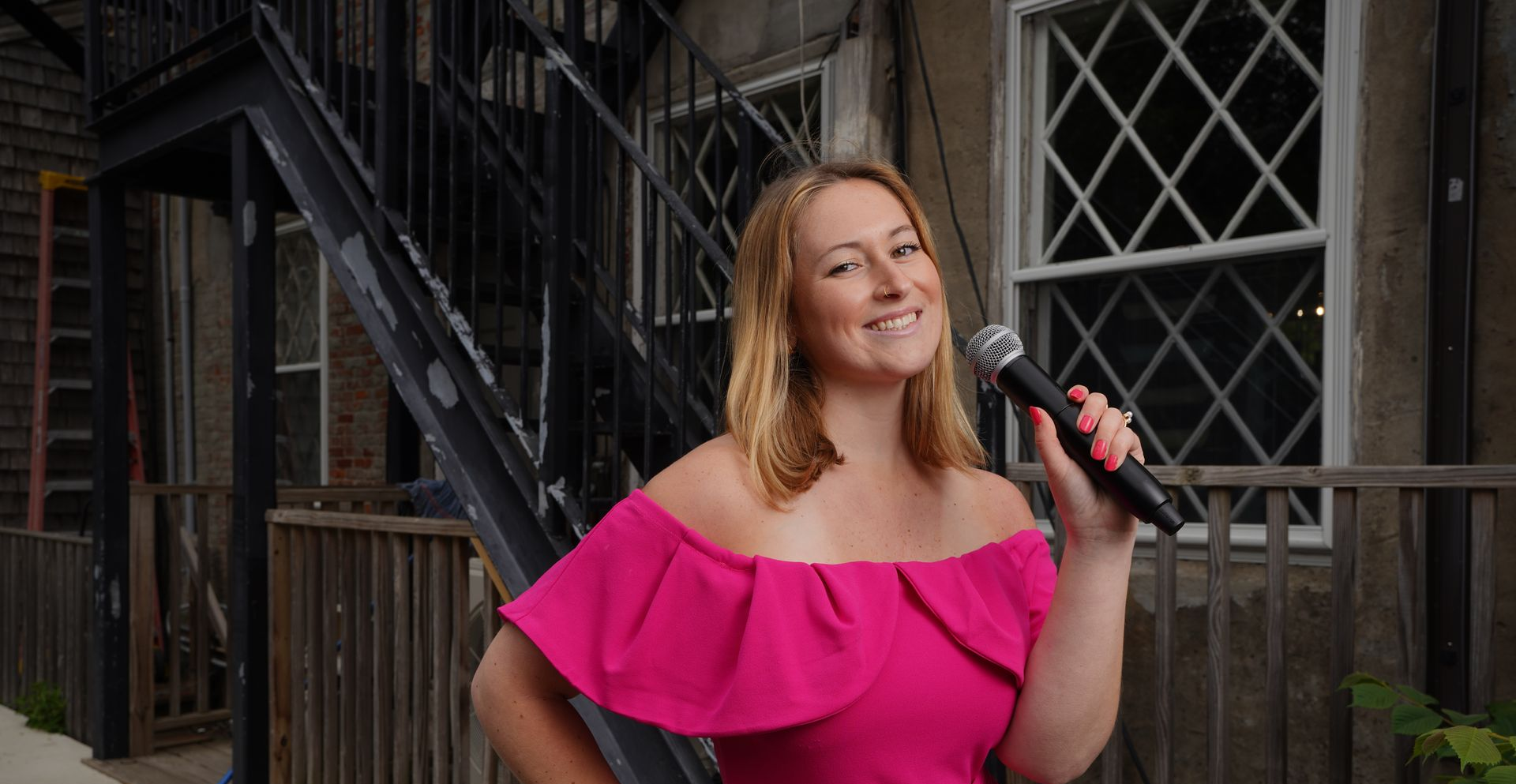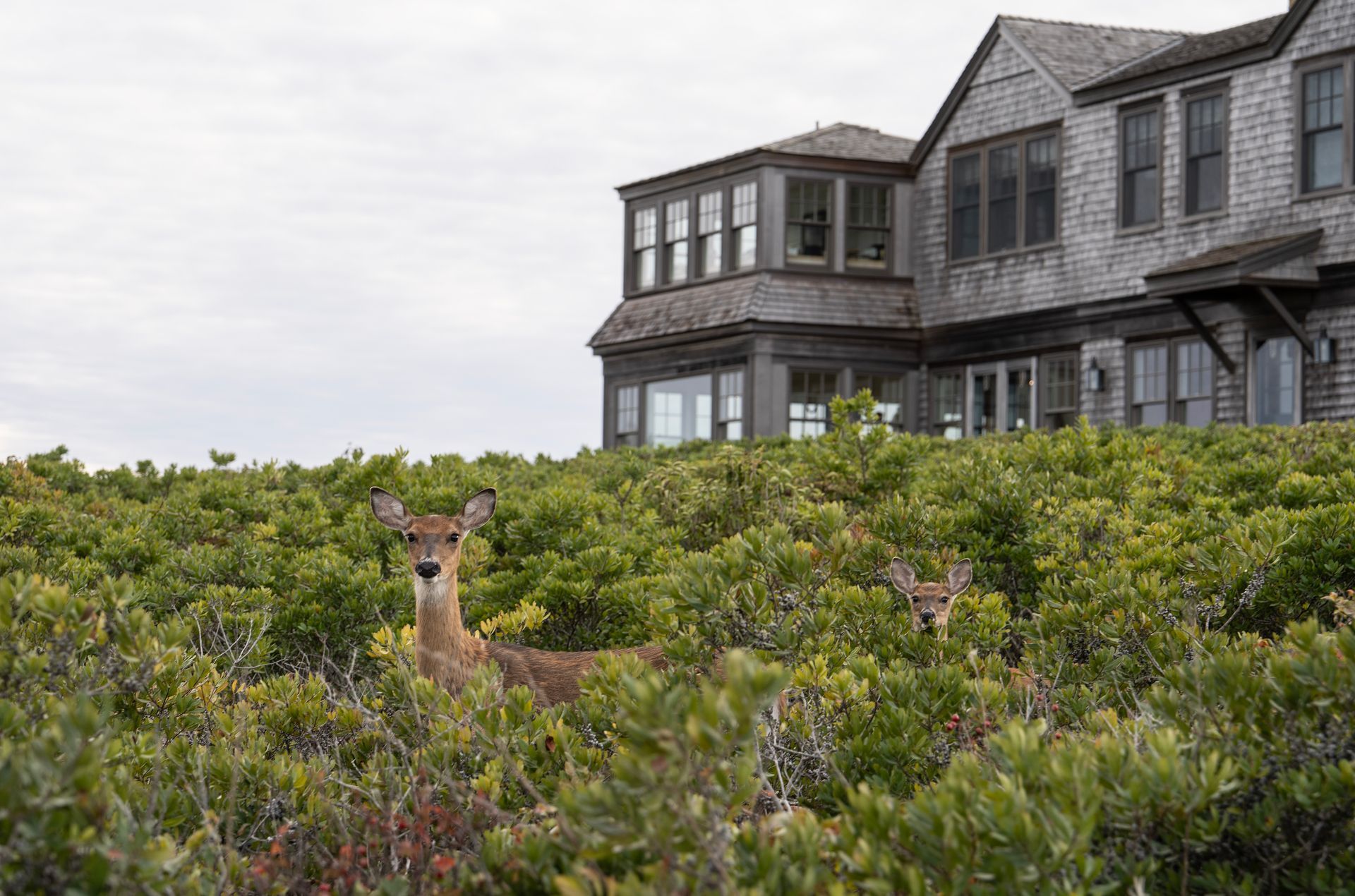Bringing Home the Bacon
Dylan and Caroline Wallace's Sustainably Raised Pigs
Written by Brian Bushard
Photography by Kit Noble
Dylan and Caroline Wallace might be the human embodiment of the farm-to-table movement, from growing vegetables and herbs at their farm to producing honey and even drying their own sea salt by the bin, from buckets of ocean water from West End beach—they live off the fat of the land.
Dylan and Caroline Wallace have now brought back another form of agriculture that hasn’t been seen on Nantucket in nearly 100 years: retail pasture-raised pork. “It's going back to sort of a simpler time, which I think is cool,” said Dylan Wallace, the owner of Eat Fire Farm on Land Bank property on Hummock Pond Road. “So many things are complicated now with technology that it’s nice to do something that’s a little slower and more intentional.”
A dozen bristly piglets can be seen running around a makeshift sty in Wallace’s backyard with their mother, a rare American Guinea Hog—considered a “threatened” breed by The Livestock Conservancy. They’re not the only pigs on Nantucket, but they’re the first to be commercially available for retail and wholesale, and island restaurants have already started to bring home the bacon.
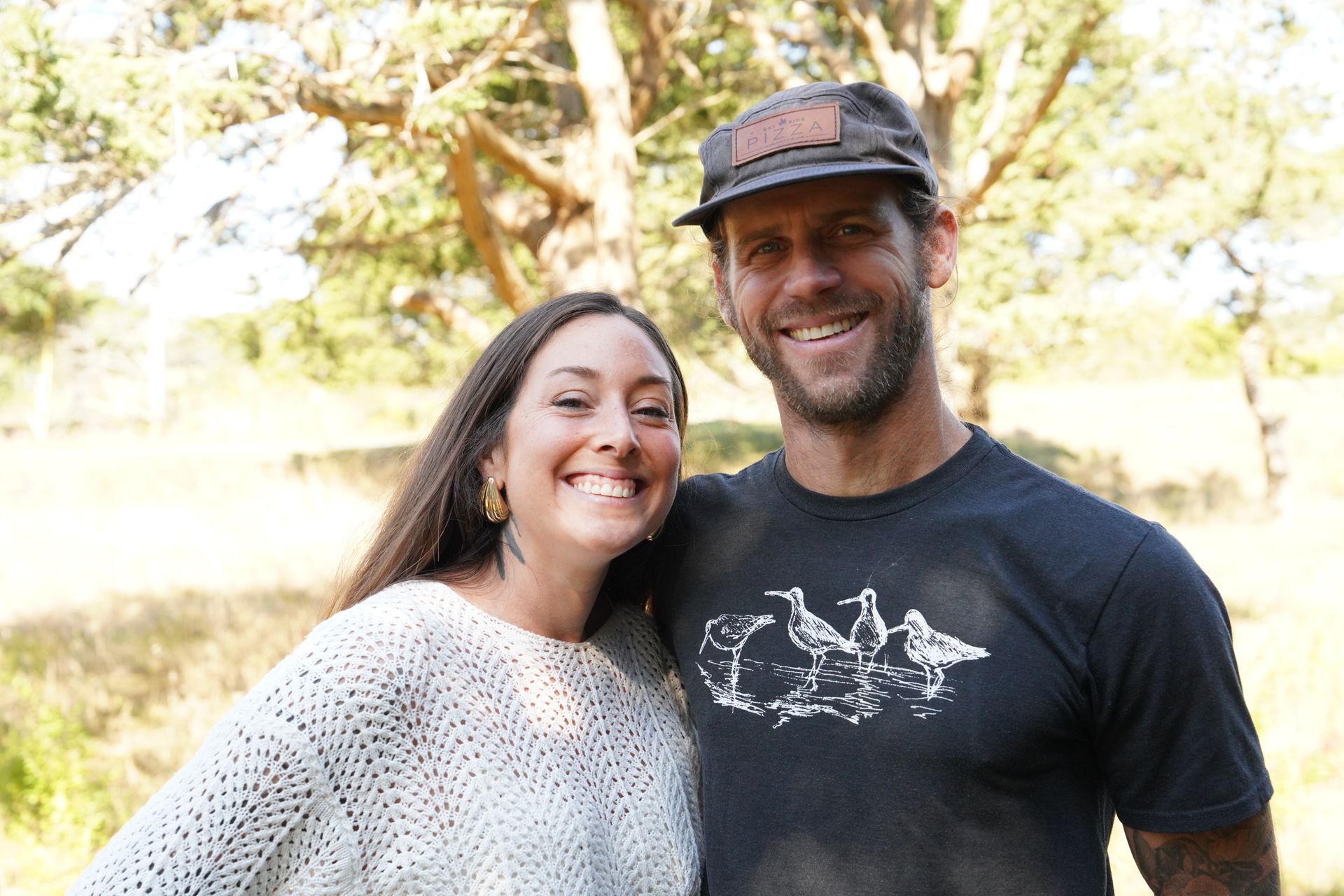
The pork chops on the Nautilus’ fall menu come from Wallace’s pigs. The pork belly in the Gaslight’s pork buns? It’s also from Wallace’s pigs. So is the bratwurst that had been available over the summer at 167 Raw, as well as the sausage Wallace tops on the pizza he makes at Eat Fire Pizza, the mobile pizza oven that makes regular stops at Cisco Brewers. This year, the meat has also been available through The Hive on Amelia Drive, after being processed at an off-island abattoir.
Dylan and Caroline have been eating some of the leftovers. “We’re having bone-in chops tonight, and we’re eating bacon all the time,” Dylan said. “Whenever we go visit somebody, webring some meat.” It’s not just pork chops, sausage and bacon, either. After two batches of pigs, Wallace turned in a supply of loin rib chops, hocks, spare ribs, uncured smoked jowl, ground pork, country-style ribs, chorizo, belly slab and bratwurst. There’s a benefit to eating locally grown meat.
As opposed to the commercially raised pork sold in bulk at grocery store chains around the country, Wallace’s pigs are given space to roam outside, where they can eat a variety of grasses, shrubs and roots, making their meat both tastier and more nutritious. Compare that to commercial slaughterhouses that source their pork from giant indoor pens, where cooped-up hogs pig out almost exclusively on grains.
“It’s like if you were fed broccoli every day. Not only would you be sick of broccoli, but the variety of vitamins would not be there,” Dylan said. “You can think of the pigs we’re raising as getting that whole rainbow of nutrients that they need. That makes them healthier and happier, and a lot more nutritious.”
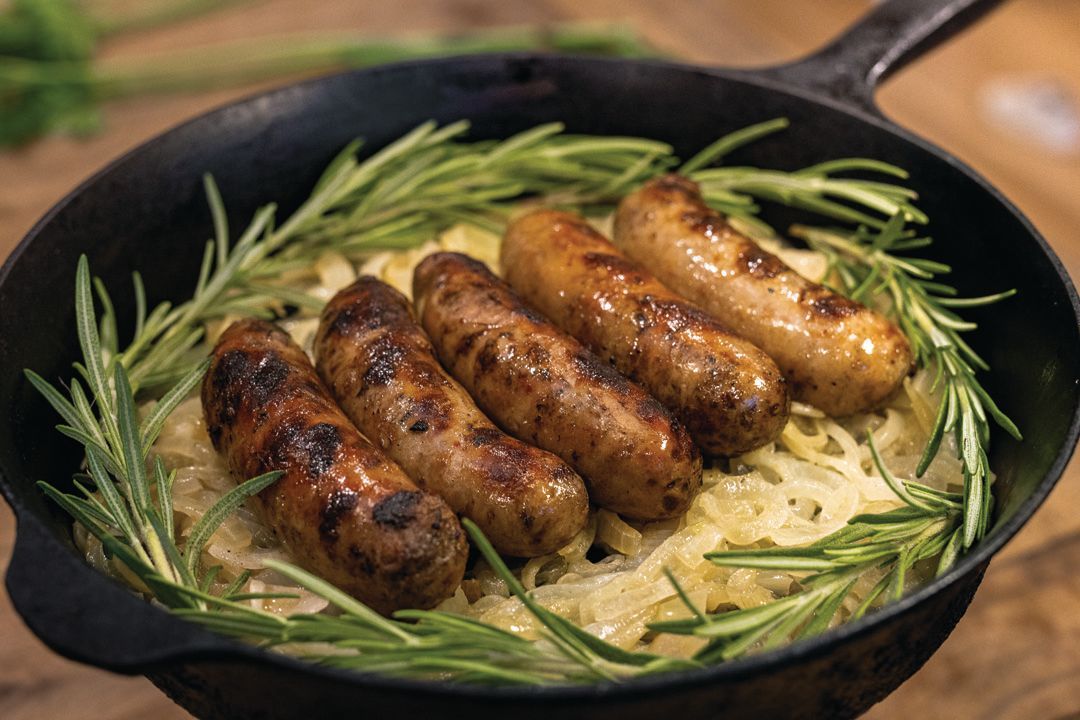
Not only do they taste good; they also serve an agricultural purpose. By eating down to the root, these piglets work like a dozen rototillers, weeding out a plot of land and preparing it for seeding. In fact, Wallace’s endeavor into pig raising started as a land management operation, not as a means to sell meat.
Instead of bringing in heavy machinery, the idea was to just bring pigs, and let them eat away at the poison ivy, bayberry and wild bramble. “The byproduct is the meat,” Caroline said.
Dylan and Caroline Wallace hope to expand the operation to multiple breeds of heritage pigs, allowing them to dig up the roots on other properties where homeowners are looking for alternatives to gas-powered machinery to till the soil. They also hope to offer more meat products from their pigs, including whole pigs that islanders or restaurants could purchase. “We’re trying to create the community that we want to live in, and not feel like we have no control over it,” Dylan said. “Now I'm really excited having a partner like Caroline, being able to take on this big release and do more, and hopefully be able to afford to spend more time farming."
